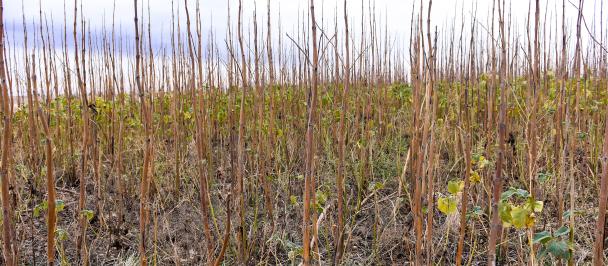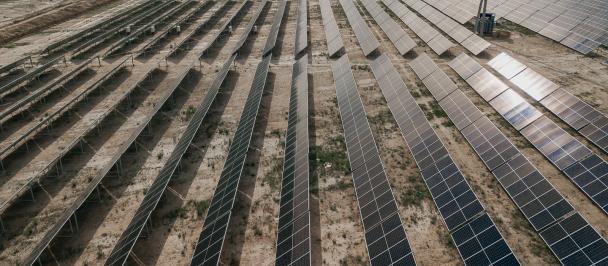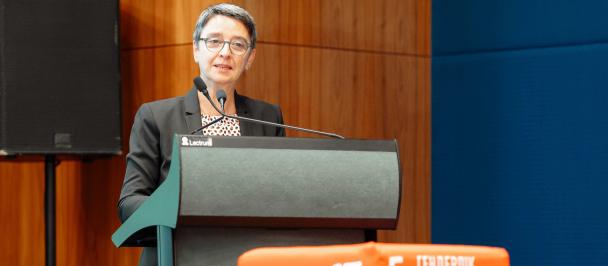Transition to renewable energy sources: economic benefits for entrepreneurs in Kazakhstan
February 12, 2024
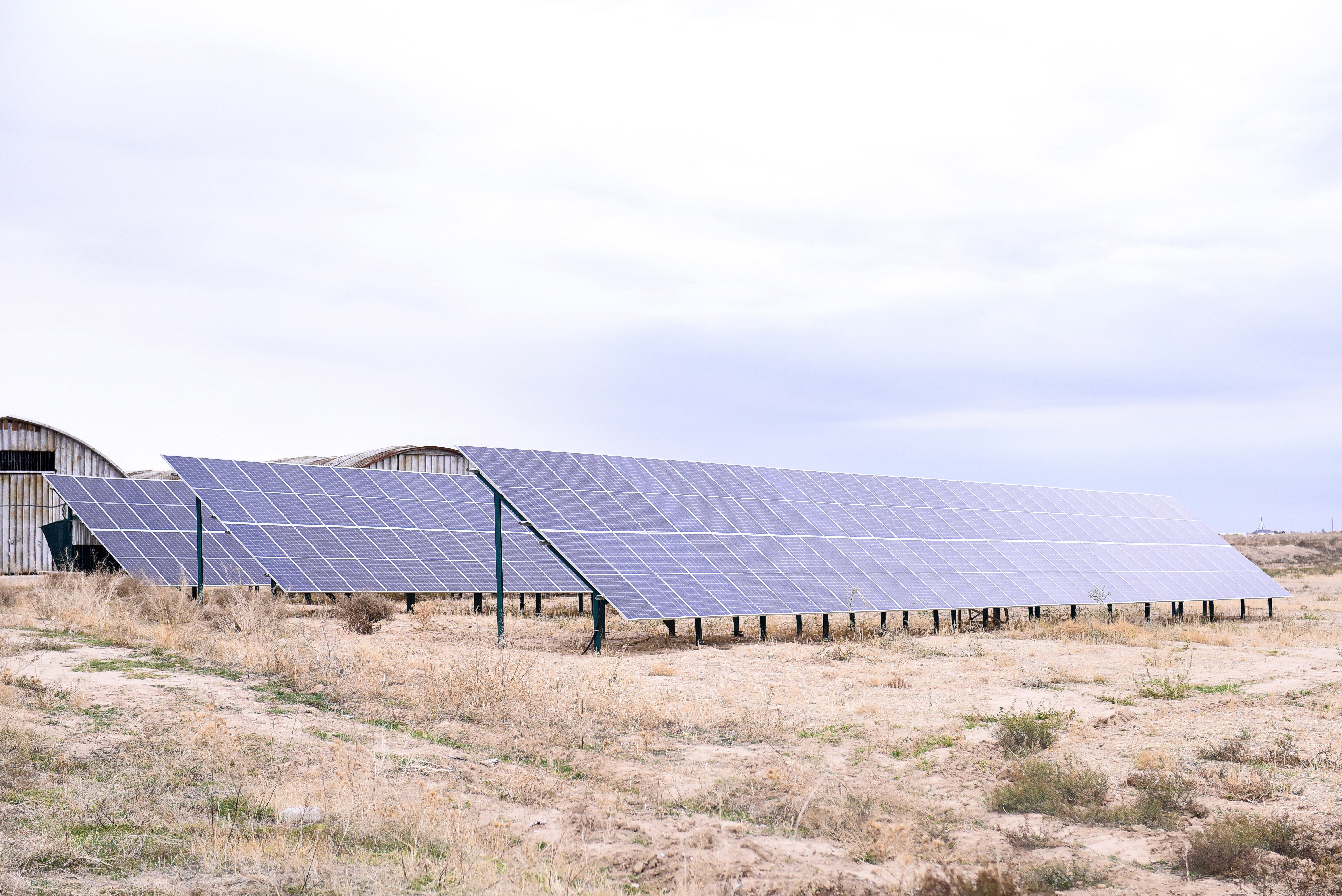
100-kW Solar plant installed in Turkistan region.
The development of small and medium-sized enterprises is an important component of a country's economic growth. The key indicator for the development of small and medium-sized enterprises is their share of the country's GDP. According to the Bureau of National Statistics, the share of small and medium-sized enterprises in Kazakhstan’s GDP in 2023 was 36.5 percent, adding 0.5 percent compared to the same period in 2022.
The United Nations Development Programme in Kazakhstan (UNDP) in partnership with the Government of the Republic of Kazakhstan and with financial support from the Global Environment Facility launched special programmes to support small and medium-sized enterprises implementing renewable energy and energy efficiency technologies. One such programme, under the De-risking Renewable Energy Investments project, offers loan principal subsidies to small and medium-sized enterprises . This initiative aims to promote small-scale renewable energy projects and reduce the financial burden of integrating green technologies.
Entrepreneurs in Kazakhstan face a number of difficulties in adopting green technologies such as lack of collateral, high interest rates on loans, and short loan terms. The joint initiatives of UNDP and the Government of Kazakhstan aim to overcome these barriers.
One example of renewable energy technologies for own use is a solar power plant (SPP) installed at the enterprise of Raushan Dzhanisbaeva, an entrepreneur from Shymkent. She has first-hand experience of the effectiveness of renewable energy technologies. The entrepreneur has already installed a 100-kW solar plant at her enterprise, which includes several dozen high-performance refrigeration units, a bakery, and an electric vehicle dealership. In 2023, Raushan applied for the UNDP financial support programme to install a second 60-kW solar plant, which will reduce the load on the central power grid and lead to savings.
"We consume around 180,000 kWh of electricity per year. We had problems because the outdated electricity grids could not cope with the load. Even additional transformers were not enough. The 35 percent financial support from UNDP was a turning point. We took out a loan to buy the solar panels and a part of it was covered through the loan principal subsidy programme. Now we save around three million tenge in electricity costs per year," explains Raushan.

Raushan Dzhanisbaeva, an entrepreneur from Shymkent.
The enterprise in Shymkent includes several dozen high-performance refrigeration units, a bakery and an electric vehicle dealership. The installation of 100-kW and 60-kW solar plants helps to reduce the load on the central power grid and leads to savings in electricity costs.

Bakhtiyar Yusupov, the owner a 10,000-square-meter greenhouse in Turkestan region.
Bakhtiyar Yusupov, who owns a 10,000-square-meter greenhouse in Shubar, Ordabasy district, Turkestan region, benefits from a 100-kW solar plant. It is not only sufficient for daily operation but also generates income through the sale of surplus electricity.
"An uninterrupted power supply is crucial for our irrigation system. Now we are no longer dependent on the central power grid, we use what we need and sell the surplus. This also helps us to earn around 500,000 tenge per month," says Bakhtiyar.
An uninterrupted power supply is crucial for the irrigation system of a 10,000-square-meter greenhouse in Turkestan region. A 100-kW solar plant is not only sufficient for daily operation, but also generates income through the sale of surplus electricity.
Another 150-kW solar plant in the village of Baskuduk in the Munaily district, Mangystau region, was installed on the site of a sugar refinery. It benefits the residents of the neighbouring communities and the employees of the refinery. According to Galym Iskakov, the head of the sugar refinery, they have reduced the consumption of the diesel generator by almost 90 percent, thereby helping to improve the ecology of the region.
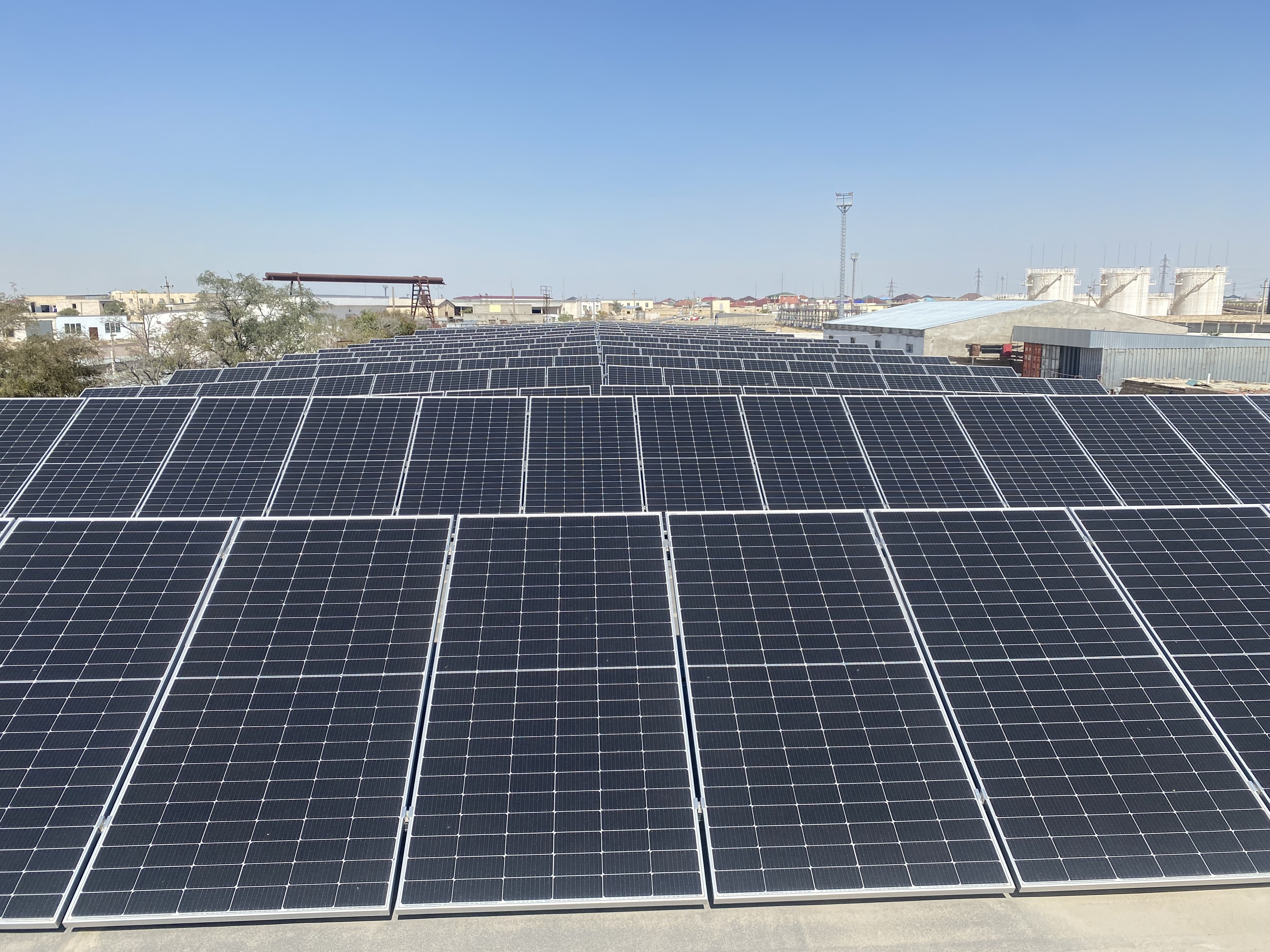
A 150-kW solar plant installed on the site of a sugar refinery in Mangystau region.
"We use a diesel generator because of the frequent power cuts. Of course, we would like to save money; ideally, our goal is to switch to cleaner fuel than diesel. After installing the solar station, we are no longer dependent on the central power grid, but we ourselves become a supplier of clean electricity for the residents of Baskuduk and Atameken villages. Our company now employs 50 people. We are planning to expand the business and create around 20 more jobs,"says Galym Iskakov.
Supporting small and medium-sized enterprises in Kazakhstan is particularly important in the context of the transition to a low-carbon economy. The UNDP financial support programmes, implemented in partnership with the Government of Kazakhstan, help entrepreneurs reduce costs, increase efficiency and create additional jobs while reducing greenhouse gas emissions. These initiatives play a key role in supporting the country's sustainable development, demonstrating the contribution that business is making to this process.

 Locations
Locations










